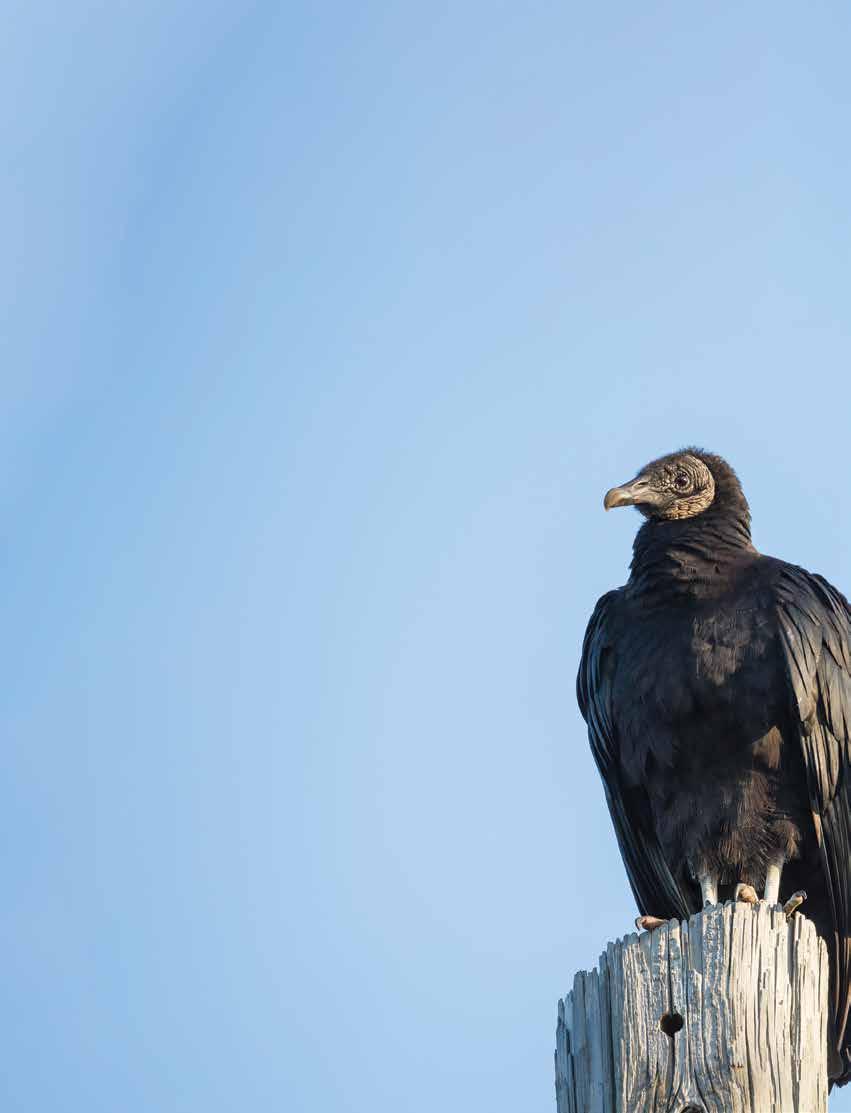
6 minute read
NCBA Welcomes Introduction of Black Vulture Relief Act
WASHINGTON (March 9, 2022) – Today, the National Cattlemen’s Beef Association (NCBA) welcomed the introduction of the bipartisan Black Vulture Relief Act, led by Rep. John Rose (R-TN) and Rep. Darren Soto (D-FL).
“Across the country, cattle producers are coping with extreme input costs and the worst in ation rate in 40 years. Livestock deaths due to black vultures are a nancial loss that no one can a ord right now,” said NCBA Director of Government A airs Sigrid Johannes. “Giving producers greater exibility on black vulture management means one less nancial burden to worry about.
We appreciate Congressman Rose and Congressman Soto’s leadership and commonsense approach to controlling this abundant predator species.” e bill would allow a cattle producer to “take” (capture, kill, disperse, or transport) black vultures that pose a risk to livestock. Additionally, the bill reduces permitting burdens and red tape by instituting a simple report that producers submit once per year detailing the number of black vultures they took. Streamlining the system and li ing the cap on number of black vultures that producers can take is a commonsense approach to managing a fully recovered, aggressive, predator species.
“Black vultures have developed into a lethal predator for newborn calves, costing Tennessee cattle producers thousands of dollars in lost revenue each year. We appreciate Congressman Rose’s bill as a signi cant tool to help control the over-population of these predators,” said Tennessee Cattlemen’s Association Executive Director Charles Hord.
Black vulture depredation rates have increased across the Southeast in recent years, surpassing 30 percent in some states like Florida.
“ e Florida Cattlemen’s Association appreciates Congressman Soto's cosponsorship of this commonsense bill,” said Jim Handley, executive vice president of the Florida Cattlemen’s Association.
“ e economic loss to Florida cattle ranchers from black vultures is signi cant every year, and we thank Congressman Soto for taking action to assist our industry with this legislation.”
"Lawrence County livestock producers have been experiencing issues with black vultures preying on newly born calves for some time. Economic loss in addition to the time and labor spent during calving season for these producers is devastating. Government approved permits…allowing producers to use lethal means to control these preying birds is also a challenge…I know this year these black vultures have been the cause of [death for] at least one calf and damage to one cow as well, along with others in previous years."
Danny Clark, Lawrenceburg, TN
"These buzzards have gotten four calves in one season, putting tremendous strain on my little 97-acre operation…The [price of] diesel, fertilizer, fencing, feed, 24D [herbicide] have all gone up"
Laura Wallace, Spencer, TN
"Last year I found one newborn [calf] dead with its eyes eaten out. This year I came up on over 30 vultures in the eld behind my house"
Mark Russell, DVM, Tullahoma, TN
"During calving season…we have constant problems with vultures loitering in our pastures. I did lose one calf so far this year. When I found it there were 40-50 vultures in the pasture and in surrounding trees. Every time a cow gives birth the vultures are surrounding it and pestering the cow. We attempt to scare them off, but they have become more brazen and will return within minutes. The population appears to be out of balance. There are too many and the stress it is causing my cows is affecting their wellbeing and the safety of my newly born calves. Help is needed with this issue as it continues to get worse."
Jeff Russell, Kingston, TN
"I have a 200 head beef cattle operation in Columbia, Tennessee, and we have had a continual problem with black vultures attacking newly born calves."
A. T. Burchell, Columbia, TN
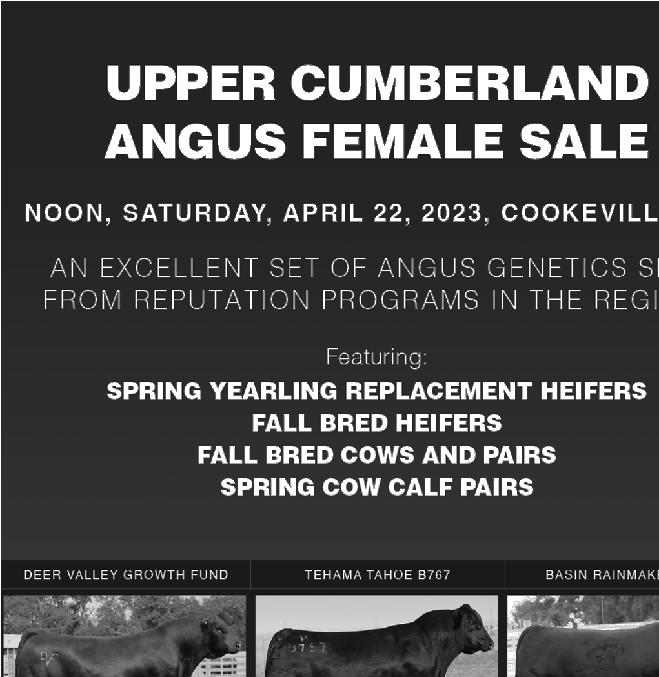
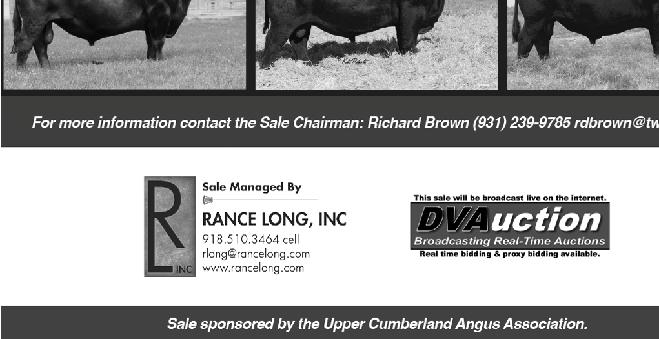
Ncba Calls Again For Immediate Halt To Brazilian Beef Imports
Last week, Brazil reported another atypical case of bovine spongiform encephalopathy (BSE) to the World Animal Organization for Animal Health (WOAH). at report indicated 35 days elapsed between when the case was rst identi ed on Jan. 18, 2023, and the date it was con rmed on Feb. 22, 2023. is represents an unacceptable delay that is in clear violation of WOAH reporting requirements. It is clear that Brazil is incapable of prompt testing and the reporting requirements that all nations must follow when engaging in international beef trade. Because of a repeated pattern of delayed reporting, the National Cattlemen’s Beef Association (NCBA) is calling on Secretary of Agriculture Tom Vilsack to take immediate action to inde nitely suspend beef imports from Brazil until it has made systemic reforms and takes necessary steps to restore con dence in the nation’s ability to participate in the global beef supply.
“We have seen Brazil repeatedly fail to meet the 24-hour requirement for reporting of animal diseases listed by WOAH. In order to protect the safety and security of the U.S. herd and American cattle producers, we demand USDA take immediate steps to block further beef imports from Brazil,” said NCBA President and South Dakota cattleman Todd Wilkinson. “Furthermore, we expect USDA to keep the border closed to Brazil until they can demonstrate that they are willing and able to play by the trade rules that govern all other nations. If they can’t play by the rules, they don’t deserve access. Secretary Vilsack needs to act now, rather than kicking the can down the road.”
Yesterday, NCBA sent a letter to USDA demanding immediate action on this issue. NCBA is also supportive of bipartisan Senate legislation to suspend Brazilian beef imports pending a review of Brazil’s standards.
“For too long, American cattlemen and women have honored the laws governing international trade, promoting fair and equitable standards, only to have nations like Brazil ignore those same standards. Brazil cannot be allowed to bene t from the investments we have made to build a massive demand for beef around the globe,” Wilkinson said. “If trade partners like Brazil fail to follow the rules, there must be consequences, they must be painful and immediate.”
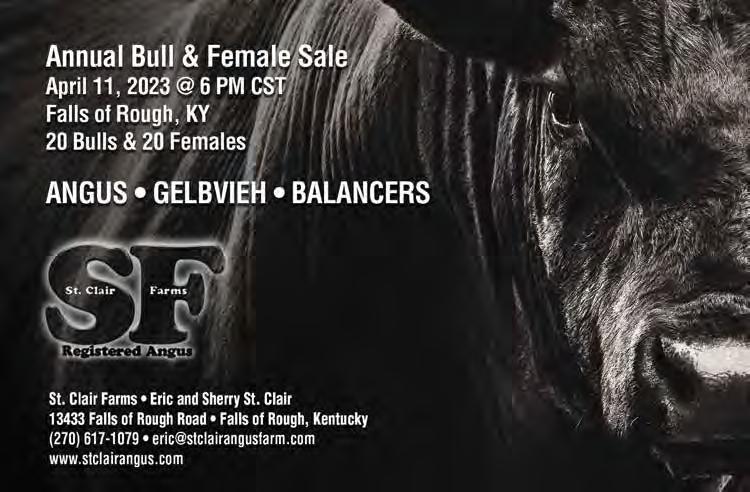
Ncba Hails House Passage Of Resolution To Stop Wotus Rule
WASHINGTON (March 9, 2022) – Today, the National Cattlemen’s Beef Association (NCBA) hailed the passage of H.J. Res. 27, a joint resolution that would invalidate the Biden administration’s new Waters of the United States (WOTUS) rule through the Congressional Review Act.
“ is vote is a win for America’s cattlemen and women, and NCBA is thrilled to see a majority of House members reject the Biden administration’s burdensome WOTUS rule,” said NCBA President Todd Wilkinson, a South Dakota cattle producer. “Shi ing WOTUS rules have plagued cattle producers for generations, and this latest rule only continues the decades of uncertainty. We urge the Senate to pass this resolution as well so it can take full e ect. At the same time, we look forward to the Supreme Court’s verdict in the WOTUS case Sackett v. EPA and hope that this ruling nally places guardrails on the federal government’s attempt to regulate small, isolated bodies of water on private farms and ranches.” e Biden administration’s WOTUS rule creates more uncertainty for cattle producers by putting the burden on individual producers to determine if a water feature on their land is considered federally regulated. Additionally, NCBA has expressed strong opposition to the Environmental Protect Agency (EPA) nalizing this rule in the middle of a Supreme Court case that addresses this very issue. NCBA is also pursuing litigation against this rule to prevent it from taking e ect and harming cattle producers. e Congressional Review Act allows Congress to invalidate an executive agency’s rule by passing a joint resolution through both the House of Representatives and the Senate. e resolution will now go to the Senate for consideration.
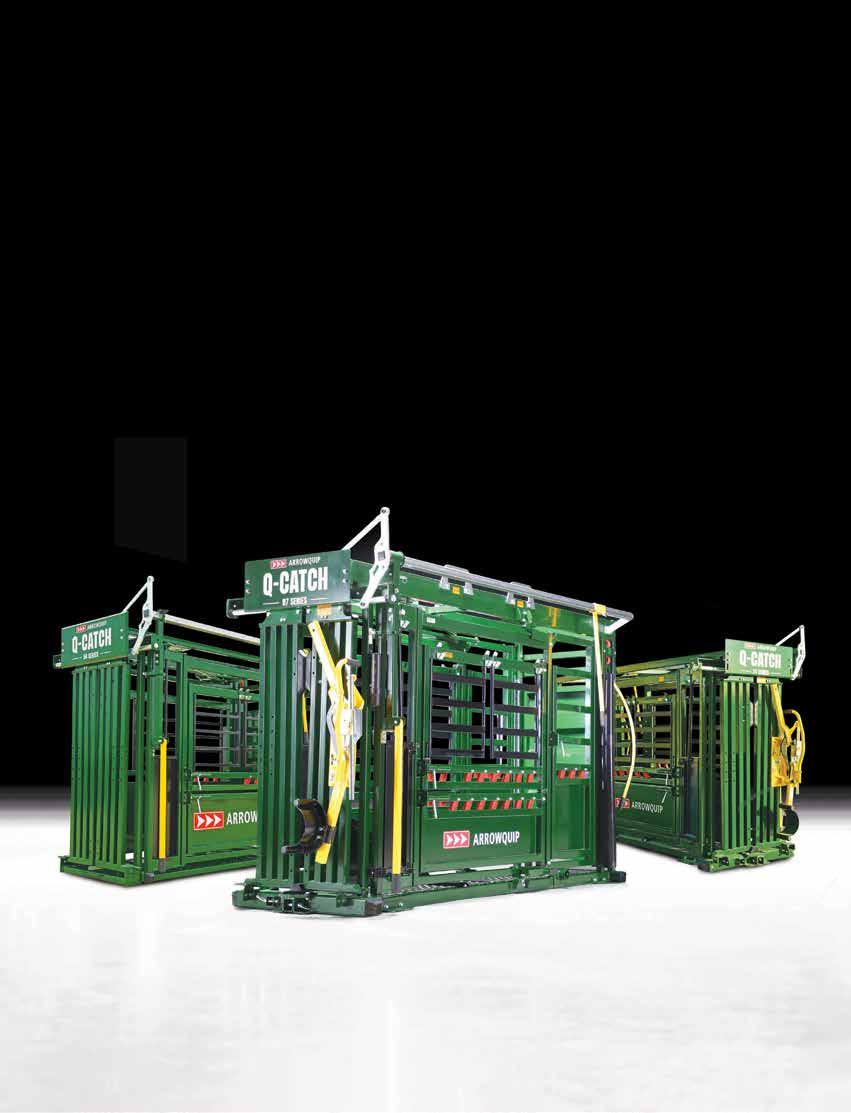
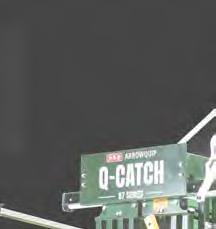
57th ANNUAL SPRING SALE
22nd ANNUAL PREMIER BULL SALE
APRIL 15, 2023 • DANVILLE, KY
SELLING: 89 HEAD OF REGISTERED ANGUS BULLS & FEMALES
22 PREMIER BULLS: Bulls must meet specified EPD, weight, & health requirements to qualify as Premier bulls. All will sell with a current BSE and will be DNA tested. 4 2 Year olds, 14 fall yearlings, 4 spring yearlings
2 OPEN HEIFERS: One by PLUS ONE out of BUTTERFLY family. One with a top 1% $B of 220 and 2% $C of 338.
4 BRED HEIFERS: Two from Lynn Creek sired by BOURBON & ON POINT Bred to REGIMENT & WILDCAT. Two from Boiling Springs Station, one by FORTRESS bred to RAINFALL
35 COWS WITH 26 CALVES: Many 3-n-1 packages. Ready to turn out on grass and go to work for you.
Goode Early Bird 8856: This outstanding donor cow sells along with her natural bull calf by NO SUBSTITUTE and 16 embryos: 4 each by NO SUBSTITUTE, SURPASS, ICONIC, WILLIAMS JONESBORO.
LIVE INTERNET BIDDING THROUGH TOP SHELF AUCTIONS TopShelf-Auctions.com or call Dan Wells (740) 505-3843
234th Sale Sponsored by the Central Kentucky Angus Association
GPS Address: 2286 Fork Church Road • Lancaster, KY 40444
Sale Day Phone: (859) 238.3195 or (859) 583.0364
Central Kentucky Angus Association Calendar
April 15: 57th Annual Spring Sale
Sale Manager: Dievert Sales Service



• Tim Dievert • 478 Dry Fork Road Danville, KY 40422 • (859) 238-3195 • Catalog at dievertsales.com


• 478 Dry Fork Road Danville, KY 40422
(859) 238-3195 tdievert@dievertsales.com
Catalog at dievertsales.com tdievert@dievertsales.com

September 9: Ladies Day - 2023
Like us on facebook
• Like us on facebook • Call for more details
Call for more details
November 9: 61st Annual Fall Female Sale
Auctioneer: Eddie Burks (270) 991-6398
Auctioneer: Eddie Burks (270) 991-6398









